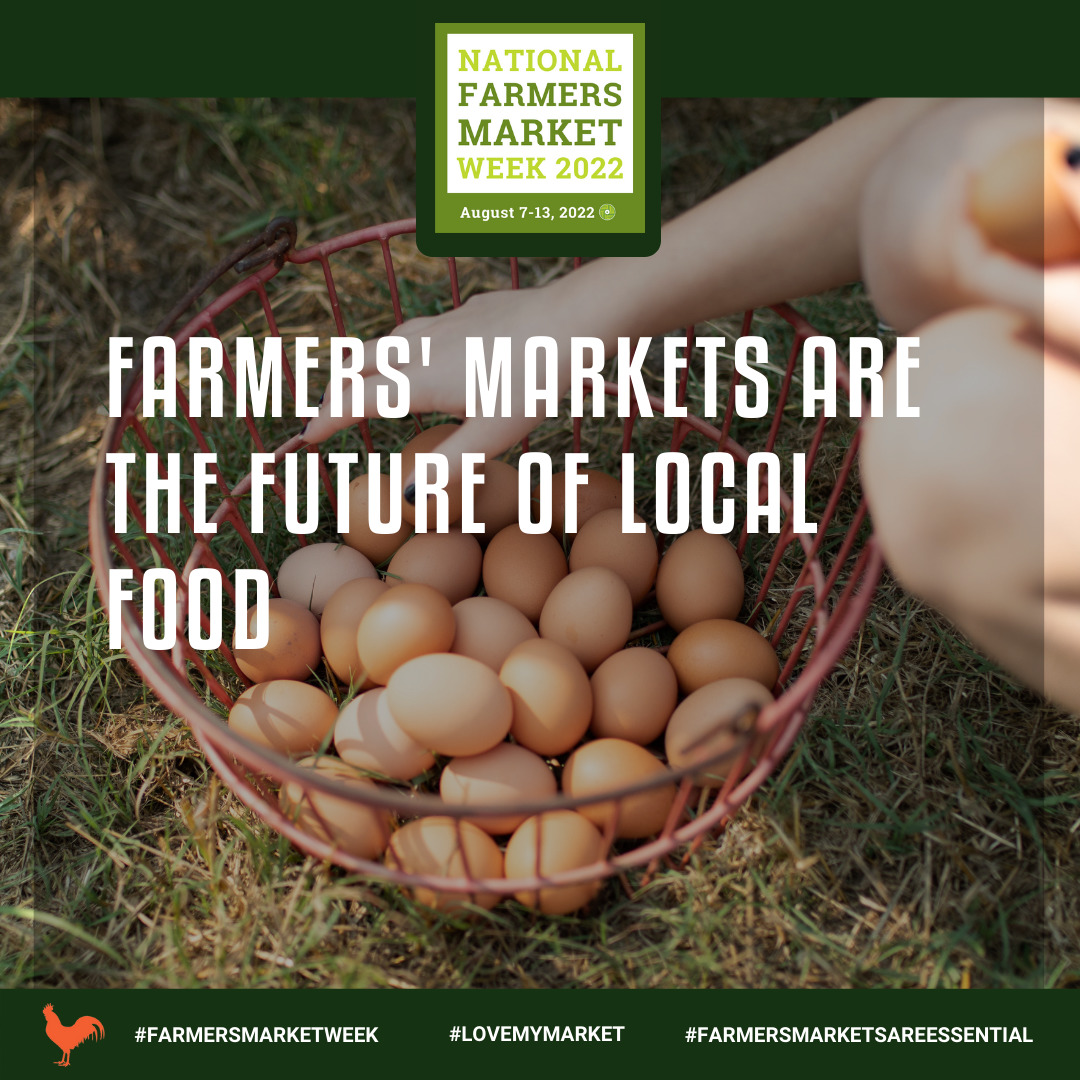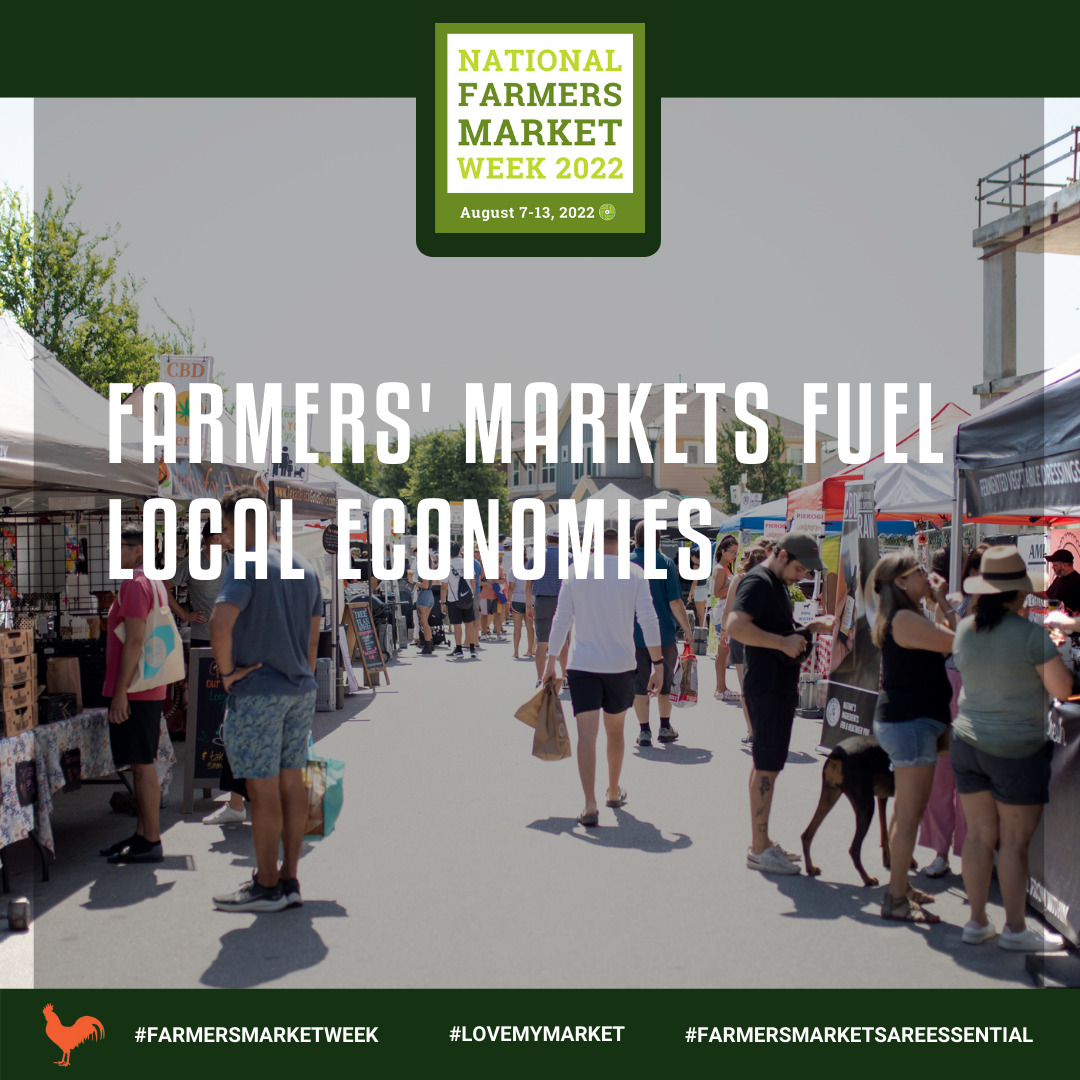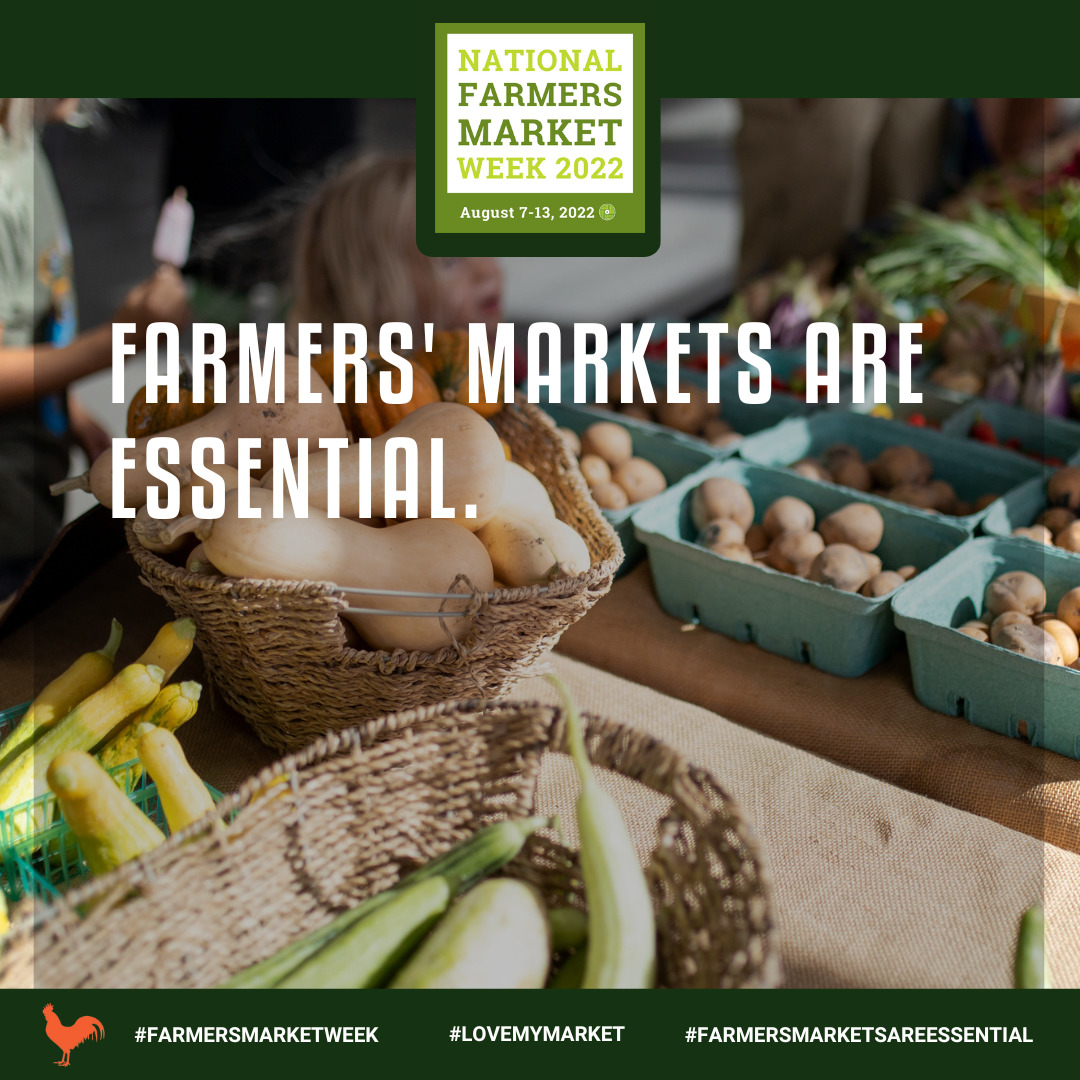Farmers’ Market Facts & Resources
Why shop at the Farmers’ Market?
Farmers’ Markets Are Essential.
Farmers’ Markets are essential. The last couple of years have made it clear that local food systems with short supply chains are resilient and dependable in making food available to their communities. Our markets have remained open throughout the duration of the pandemic, changing our operations when needed to ensure that we could provide a safe space for the community to access fresh, local food. The first weekend after the freeze in February 2021, our markets were open and shoppers lined up to stock up on everything our vendors were able to bring. While large chain stores faced shipment delays and shelves were bare, our vendors were able and ready to make the short trek to the market to feed the community.
When many of our farmers lost their entire season’s crops during the freeze, the community stepped up to donate to our Ag Producer Support Fund, and shoppers came out to purchase whatever items the farmers were able to bring. This year alone, farmers and ranchers have faced a week of below freezing temperatures to start the year, and now three months of record-setting heat and extreme draught. As these extreme weather circumstances become increasingly frequent, farmers need support to cover increased expenses to keep crops watered, keep animals fed, and invest in equipment like high tunnels to protect their produce, so that they can continue providing healthy local food for the community.
Quite simply: We need farmers, and farmers need our support. These connections between farmers and the community are what builds and grows a sustainable food system here in Austin, and why this mission is so important to us.

Farmers’ Markets are the Future of Local Food
Farmers’ markets provide one of the only low-barrier entry points for new farmers, ranchers, and food entrepreneurs, allowing them to start small and test new products. For many small farmers, the markets are their primary source of income and the best way for them to connect with consumers. Farmers’ markets cut out the middlemen, so all profits made at the markets go directly to the farmer. Here in Texas, the climate allows for two growing seasons, and our markets operate year-round – creating the demand for fresh produce and keeping the farmers at work year round supplying the food.
Per our rules, all of the produce you find at the market is grown within a 150 mile radius of the market. As a producer only market, we also do not allow any reselling of items that they didn’t grow themselves. It’s imperative that we support local farmers in order to preserve the land and keep small farmers here in Austin. One of the biggest hurdles that young farmers face is access to affordable land, and as Austin grows, a lot of available farmland is being bought out by developers at extremely high costs to be used for housing and other infrastructure. An estimated 30% of all farmland is owned by landlords who don’t farm themselves, according to U.S. Department of Agriculture.
It takes time for farmers to truly establish a business, and many who are just starting out need help finding land and business planning. Check out some of the organizations in our list below for some great resources for farmers who are just getting started. We also recommend contacting your local politicians to demand more action on helping farmers and improving land access.

Farmers’ Markets Support Conservation, Connection, and Education
According to a study conducted by the American Farm Bureau, 72% of consumers know “nothing” or “very little” about farming or ranching. Farmers markets serve as invaluable educational sites and a rare bridge between urban and rural communities, fostering direct relationships between community members and farmers who can work to create a more fair and sustainable food system. In addition, research has indicated that by facilitating interactions between farmers and consumers, farmers’ markets can shift both the purchasing habits of consumers as they learn about the importance of local, sustainable food.
The leadership team Texas Farmers’ Market inspects all farmers and ranchers who sell at our markets to ensure that they meet our guidelines of sustainability. When you purchase meat from one of our ranchers, you can rest assured that they are treating their animals with the utmost care and respect (and doing so is no small task in this weather). They can also educate you on the importance of things like grass-fed beef or pasture raised animals, and how their work helps the environment. In addition, most of our farmers follow organic practices, despite not having official certification (because it can be too expensive for small farmers!). The market is a place to talk directly with your farmers and learn about their practices, so you can feel good about the food you are eating and know that you’re also reducing your carbon footprint.
The more we can continue to build connections and spread the word about the importance of a sustainable food system, the more we can do together, as a community.

Farmers’ Markets Stimulate Local Economies
When you shop at the farmers’ market you are supporting local human beings and the local economy, as opposed to massive agribusiness and GMO food conglomerates. Texas Farmers’ Market supports over 130 small businesses across our two markets, and draws thousands of shoppers to Cedar Park and Mueller every weekend. It’s not just the vendors who benefit from this – businesses near or around farmers markets also benefit from proximity and increased foot traffic. Vendors tend to purchase their supplies locally (and at our markets are encouraged to also source from fellow vendors), keeping more dollars spent within the community.
As local farms and businesses become more successful, they are in turn able to create more jobs. Likewise, behind the scenes of every successful farmers market is a dedicated team working to make the market thrive. These farmers market operators also need community and financial support to run their markets. Texas Farmers’ Market is a non-profit organization, which means that the majority of our funding comes from grants, donations, and vendor booth fees. Our team currently consists of only 4 full time employees. The more we can get people to change their food habits and shop locally, the more we can grow, support our vendors, and get more fresh, healthy produce into the hands of those who need it.

Farmers’ Markets are Key for Community Food Access
Providing access to sustainable, local food for ALL Texans is critical to our mission at Texas Farmers’ Market.
We offer a healthy food access program at both of our markets in partnership with the Sustainable Food Center and their Double Up Food Bucks Program. Shoppers can bring their SNAP/Lonestar/EBT card to the Food Access Booth at Lakeline or Mueller to withdraw orange SNAP dollars to be spent on a variety of essential items at the market. Shoppers can also double up to $30 in yellow Double Up Food Bucks to use on fresh fruits and vegetables every market day.
During the months of April through October, Texas Farmers’ Market participates in the WIC-associated Farmers’ Market Nutrition Program. Shoppers must bring their WIC Shopping List to the Food Access Booth at Lakeline or Mueller to receive their vouchers, which can be used at participating farmers’ booths. Our food access associates will automatically distribute an additional $30 yellow Double Up Food Bucks to spend on fresh fruits and veggies.
We’re working hard to spread awareness around these amazing programs and have been creating new resources to help shoppers, which can be found on our website at this link. Help us spread the word with anyone you know who would benefit from these programs and help us get more fresh, local fruits and veggies into the hands of all who need them.
ADDITIONAL RESOURCES
Central Texas Young Farmers Coalition/National Young Farmers Coalition
City of Austin Office of Sustainability
Texas Organic Farmers & Ranchers Alliance
 Texas Farmers Market
Texas Farmers Market


Follow Lakeline: